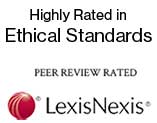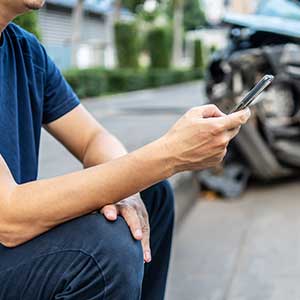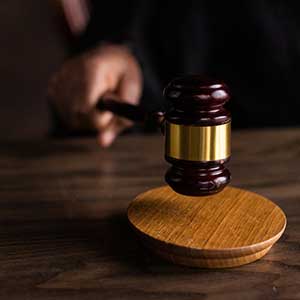What to do after an accident?
- Preliminary Matters
- What to do at the scene of an accident?
- What to do after an accident?
- Should I contact police after a car accident?
- How long do I have to report a car accident?
- Should I go to the doctors after a car accident?
- What is a personal injury claim?
- What is liability?
- What do I have to prove to establish negligence?
- The insurance company asked me to sign a records release form. Should I sign it?
- What factors will the insurance company consider when evaluating my claim and formulating an offer?
- How long will my personal injury case take?
- Value of Your Case
- How much is a personal injury case worth?
- I have been in an accident but is it worth pursuing?
- How the lawyer evaluates your case?
- What are factors that insurance companies consider while evaluating injury claims?
- How do you determine the value of my claim?
- What damages am I entitled to recover?
- Are there limits on what expenses I can claim as damages in a personal injury case?
- You and Your injury Lawyer
- Do I need a personal injury lawyer?
- Why is it important to talk to a lawyer after an accident?
- When should I contact a lawyer?
- I don’t want to go to court; can a lawyer still help me?
- What kind of accidents do our lawyers handle?
- Is my case big enough for a lawyer to handle?
- Will I have to pay a fee for my lawyer to handle my case?
- How much does a personal injury lawsuit cost?
- How can I help my lawyer to achieve the best outcome in my case?
- What should I bring when meeting with my lawyer for the first time?
- How much contact will I have with my injury lawyer?
- Settlement and Litigation
- How much time do I have to file a personal injury lawsuit?
- How is a personal injury case initiated?
- What happens after a lawsuit is filed?
- What are the different stages of a personal injury case?
- What defences might I have to overcome to win my case?
- What is an examination for discovery?
- What questions will be asked during my examination for discovery?
- What are the elements of a negligence case?
- What is assumption of risk?
- What is a mediation?
Dealing with an accident and its aftermath can be overwhelming. It’s crucial to take the right steps to protect yourself and your rights. Here are some essential tips to guide you through the process:
1. Inform Your Family Doctor of Your Injuries
Seek medical attention promptly and inform your family doctor about your injuries. Documenting your injuries and receiving appropriate treatment is vital for your health and potential legal claims.
2. Call a Lawyer for a Free Meeting
Reach out to a knowledgeable lawyer for a free consultation. Understanding your rights, obligations, and options is crucial to making informed decisions. A lawyer can guide you through the legal process and help protect your interests.
3. Report the Accident to Your Insurance Company
Notify your insurance company about the accident promptly. Request the necessary accident benefits forms to initiate the claims process.

4. Fill Out and Send Accident Benefits Forms
Complete and submit all required accident benefits forms to your insurance company. Make sure to keep copies for your records. The specific Accident Benefits Forms may vary slightly depending on the province or territory where the accident occurred, but they generally include the following main forms:
- Automobile Accident Benefits Proof of Claim: This form serves as your formal application for accident benefits. It includes details about the accident, the injuries sustained, and the benefits you are seeking.
- Employer’s Confirmation of Income: This form is used to verify your pre-accident income if you are claiming income replacement benefits due to being unable to work because of your injuries.
- Attending Physician’s Form: This form is completed by your treating physician and provides information about your medical condition, treatment plan, and prognosis.
These forms help your insurance company assess the extent of your injuries and the benefits you are eligible to receive, which may include:
- Income Replacement Benefits: For those unable to work due to accident-related injuries.
- Medical and Rehabilitation Benefits: To cover necessary medical treatment and therapy.
- Attendant Care Benefits: For personal care assistance if you are unable to care for yourself.
- Non-Earner Benefits: For individuals who do not qualify for income replacement but still suffer from severe impairments.
- Caregiver Benefits: For caregivers who need to care for dependents injured in the accident.
- Death and Funeral Benefits: In the unfortunate event of a fatality, benefits are available to the deceased person’s family.
5. Do Not Speak or Meet with Insurance Adjusters
Avoid speaking with insurance adjusters or claim investigators until you have consulted with a lawyer. Your lawyer will handle communications with insurance companies on your behalf.
6. Notify Your Employer or School if Off of Work
If you need time off work due to the accident, inform your employer or school promptly. Keeping them updated about your situation is essential for both legal and employment purposes.
7. Claim EI Sick Benefits if Off Work for Over Two Weeks
If your injuries prevent you from working for more than two weeks, contact Employment Insurance (EI) to apply for sick benefits. Call Service Canada Toll-Free: 1-800-206-7218.
8. Document Injuries with Photographs
Take pictures of your injuries to create a visual record of their severity and progression.

9. Document Vehicle Damage and Other Involved Vehicles
Capture images of the damage to your vehicle and any other involved vehicles. These photographs can be valuable evidence for your claim.
10. Record Health Care Professionals’ Information
Keep a record of the names and contact information of the healthcare professionals involved in your treatment.
11. Record Family Care-giving Time
Family members caring for the injured person should record the dates and times spent providing care. This information can be important for potential claims.
12. Check for Additional Insurance Coverage
Investigate whether you have additional insurance coverage, such as long-term and short-term disability insurance through your work, school, or private plans.
14. Track Expenses and Keep Receipts
Maintain a detailed record of all expenses related to the accident, including medical bills, transportation costs, and any other relevant expenses. Keep copies of all receipts.
15. Follow Doctor’s Recommendations and Seek Rehabilitation
Comply with your doctors’ advice and follow their treatment plans. Seeking rehabilitation as soon as possible can aid in your recovery and potential legal claims.
Download the PDF Here!
Want to save a copy of this page so you can read it at a later time? Click the button to save to your desktop or phone.
Download Now!Tell Us Your Story
✓ You Pay Nothing Until We Win ✓ Free Case Evaluation ✓ 25 Percent Contingency Fees
CLG Injury Law understands that your accident has had negative impacts on your life. Contact us today to get us fighting for you in your corner. Let’s get you back on the road of life.








Call Us Today!
We are here to help clients and people. If you are experiencing difficulties in your life due to an accident, please reach out and let us help fix this disruption to your lifestyle. We are here for you!
1-800-606-2529
CLG Injury Law Blog
An informed client is a happy client. Check out the latest CLG Injury Law News, Health & Safety Tips, Recalls, Law Briefs, and much more:
Maritime Road Trips for June, 2025
Living Roots Music Festival- Fredericton June 4th-8th, 2025 Living Roots Music Festival is a multi venue, multi genre music festival...
Read MoreAnxiety After a Car Accident
The trauma of a car accident often extends beyond physical injuries, with anxiety and other mentalhealth challenges emerging as invisible...
Read MoreThe Long-Term Effects of Brain Injuries from Car Accidents: What Families Should Know
Car accidents are a significant public safety concern across Canada, with serious implications forthose involved. Among the most critical injuries...
Read MoreMaritimes Road Trips for May, 2025
Halifax Comedy Festival – Halifax, NS May 7th-10th, 2025 With stages around the city featuring comedians from across North America,...
Read MoreBrowse other sections to find out more information about your situation:
Learn all about what your case is worth and if you should proceed with your case.
Find out what you need to know before contacting a lawyer after an accident.











